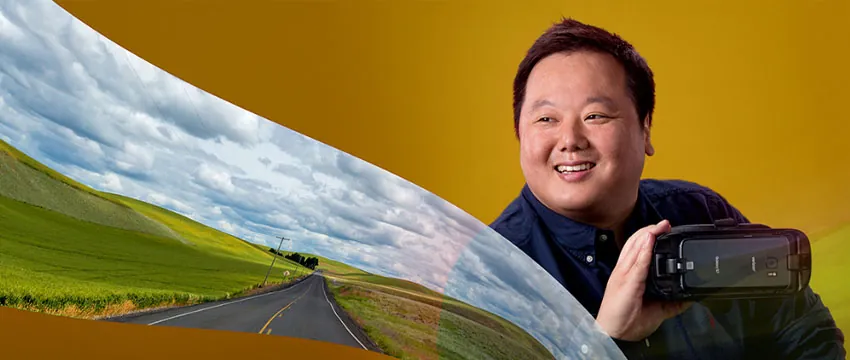Doctoral student Jihoon Kim researches virtual reality’s impact on travel

Doctoral student Jihoon Kim researches virtual reality’s impact on travel
Editor’s note: this article was written by the UGA Graduate School and originally appeared on grad.uga.edu.
Imagine virtually experiencing the beaches of Turks and Caicos before booking a trip to visit the destination in reality.
Interactive marketing using virtual reality (VR) might one day help you decide your next vacation destination.
That is, if Jihoon Kim has anything to say about it.
A doctoral student in the Department of Journalism and Mass Communication, Kim studies how virtual experiences have the potential to transform marketing communication.
Kim is advised by Dr. Grace Ahn, director of the Games and Virtual Environments Lab (GAVEL) in the Grady College of Journalism and Mass Communication.
An interdisciplinary research facility, GAVEL takes a human-centered approach to investigating virtual experiences and how they influence the attitudes and behaviors of others. The lab’s research is focused on how interactions in the virtual world can shift traditional rules and norms of social interactions in the physical world.
“Because virtual experiences are inherently interactive,” Kim explains, “they have the potential to evoke stronger emotions and facilitate stronger engagement.”
“My dissertation [research] aims to show that virtual tours can facilitate a mental representation of a mediated environment, a crucial step in constructing attitude and encouraging behaviors,” Kim says.
When planning a vacation, for example, travelers will often seek advice from friends, relatives, and tourism websites.
These more traditional advertising platforms offer useful information on various destinations but are often less engaging than using newer media technology.
“Using virtual tours to promote a travel destination should help consumers engage with the information they are given, thus increasing their desire to experience a destination in person,” he says.
Travelers might be more likely to purchase a travel package, for instance, if he or she can virtually experience a distant location first.
“By providing sensory-rich simulations, VR tourism allows potential travelers, during their pre-trip planning stage, to experience a destination vividly through their sensory channels. This enables them to feel, to an extent, the intensity of emotions that travelling to that destination might afford.”
With such a realistic preview of a travel destination, VR tourism can provide future travelers a sense of confidence that the destination they ultimately choose will be right for them.
After graduation, Kim plans to pursue a position at a research university where he can “teach aspiring students, share knowledge with colleagues, and discover new challenges, perspectives, and approaches in my field of study.”
“I believe the Ph.D. program at the Grady College will be a major step toward accomplishing my career goal of becoming a competent researcher.”